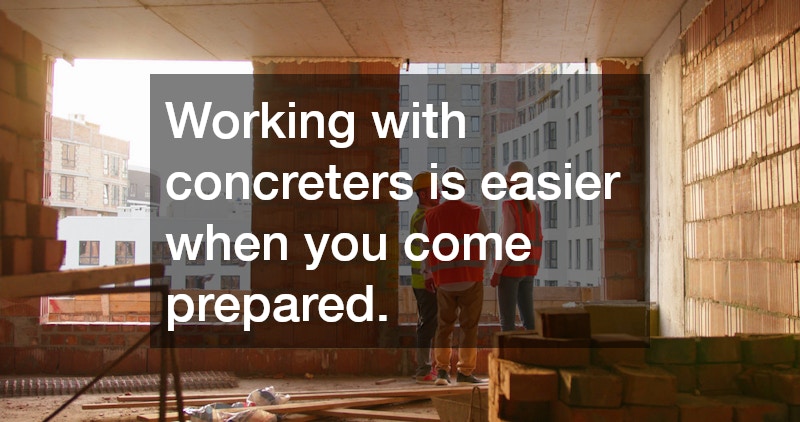
Hiring concreters can make or break your next building or renovation project. Whether you’re laying a new driveway, building a patio or working on a larger construction job, the quality of the concrete work impacts the durability and finish of the space for years to come.
Most people don’t think much about what goes into a slab of concrete, but timing, weather, site prep and communication all play major roles in the outcome. If you’re preparing to work with concreters for the first time or want to ensure better results next time around, these three tips can help you avoid common mistakes and finish with a result you’re proud of.
Know What You’re Asking For
Concrete is not a one-size-fits-all material. Depending on where and how it’s being used, concreters can apply different mixes, finishes and reinforcement techniques. You’ll want to be specific about what the slab is for, how much weight it needs to support and whether you want a smooth, exposed or textured finish.
Start by researching the basic options available. Do you need plain grey concrete, coloured concrete or exposed aggregate? Will your slab be structural or decorative? Knowing these answers early makes it easier to have clear conversations and get accurate quotes. If you’re not sure, a good concreter should walk you through your choices.
It’s also important to consider your site access, slope and surrounding structures. A narrow or sloped site may need smaller trucks or extra work preparing the base. If it’s a job like a driveway or footpath near trees or drains, ask about reinforcement and potential cracking. Getting into the details early means fewer surprises later.
Communicate Clearly and Book Ahead
Quality concreters are in high demand, especially during the warmer months when conditions are ideal. Don’t wait until the last minute to make contact. It’s best to reach out at least a few weeks in advance, even longer if you’re in a busy area or planning a bigger job.
Once you’ve made contact, clarity is everything. Supply plans, measurements and photos if you can. Walk them through access points, parking, storage space for materials and power or water availability. The more information you provide upfront, the better they can prepare and the smoother the pour will go.
Don’t forget to talk about timing. Concrete is time-sensitive, and once the truck arrives, it’s all hands on deck. Agree in advance on the day and time, confirm who will be onsite and make sure all prep work—like formwork, steel or subgrade—has been inspected and approved. Delays on the day can be costly and affect the final quality of the pour.
Ask questions if anything is unclear. If you’re unsure about timelines for curing or how long you need to stay off the new surface, get it in writing. Good concreters will explain the process in plain language and let you know what to expect at each step of the way.
Respect the Process and the Weather
One of the most overlooked factors when working with concrete is the weather. Temperature, humidity and wind can all influence drying times and surface quality. Concreters will often need to adjust their methods to suit the conditions—this might mean starting early, covering the slab, using additives or spraying water during curing.
Trust their expertise. If they reschedule due to bad weather or ask for changes to your planned pour time, it’s usually to protect the finish. Trying to rush through a job in unsuitable conditions often results in cracking, uneven colouring or poor strength. Concrete is a material that rewards patience.
After the pour, your job isn’t over. The slab needs time to cure properly, which may take several days. Follow any instructions around moisture retention, sealing or weight limits. Avoid driving on new driveways or placing furniture on fresh slabs until you’re given the all clear.
Respecting the process also means not making last-minute design changes or adding pressure during a pour. Once the concrete is in, there’s very little room for adjustment. Take time during the planning phase to finalise everything from measurements to surface finish and edging.
Working with concreters is easier when you come prepared, ask the right questions and allow room for their professional judgment. Whether it’s a small backyard slab or a full-scale commercial pour, success depends on clear plans, good communication and realistic expectations about time, weather and curing.
By understanding the materials, trusting the process and booking early, you’ll avoid common missteps and end up with a finished product that’s strong, level and ready to last.




